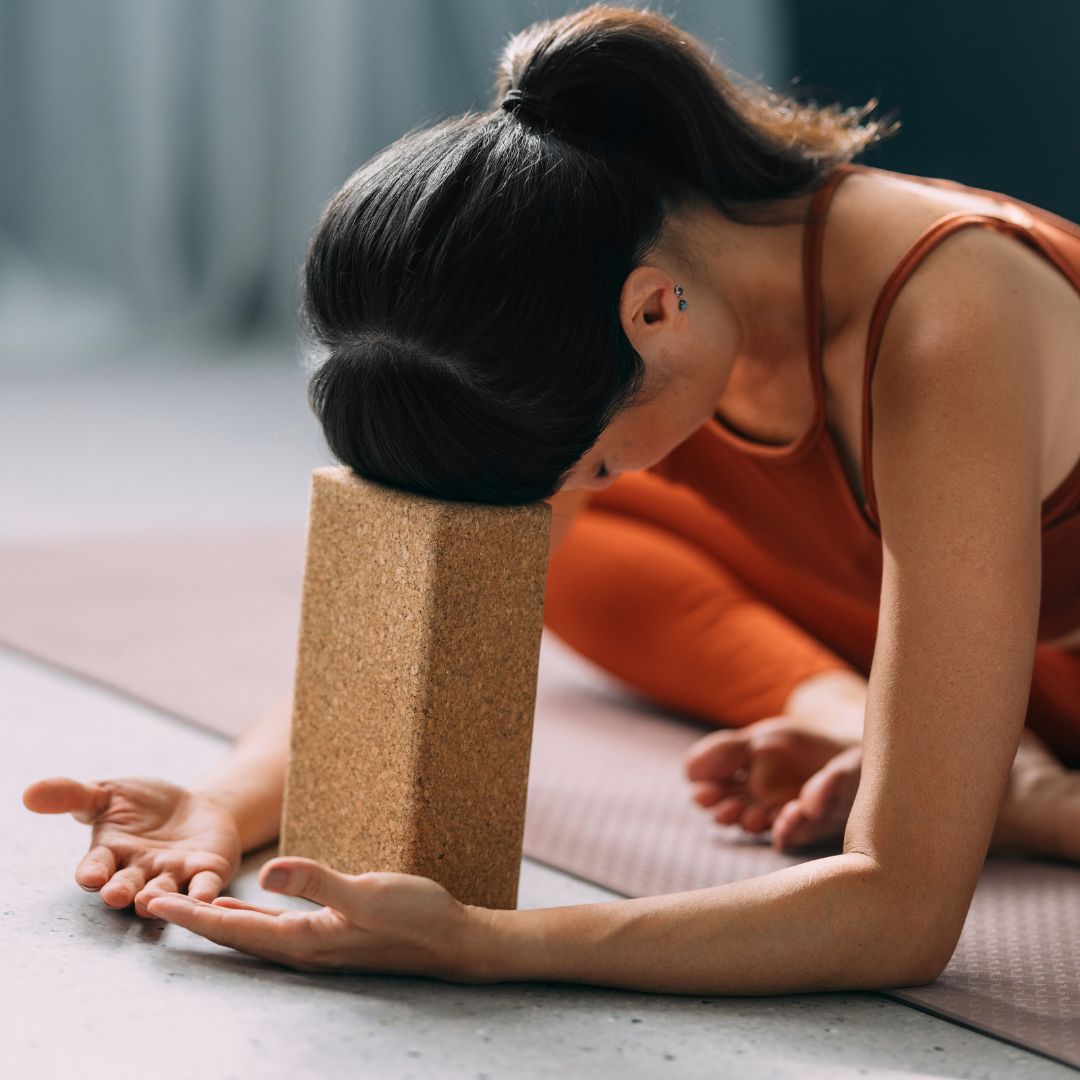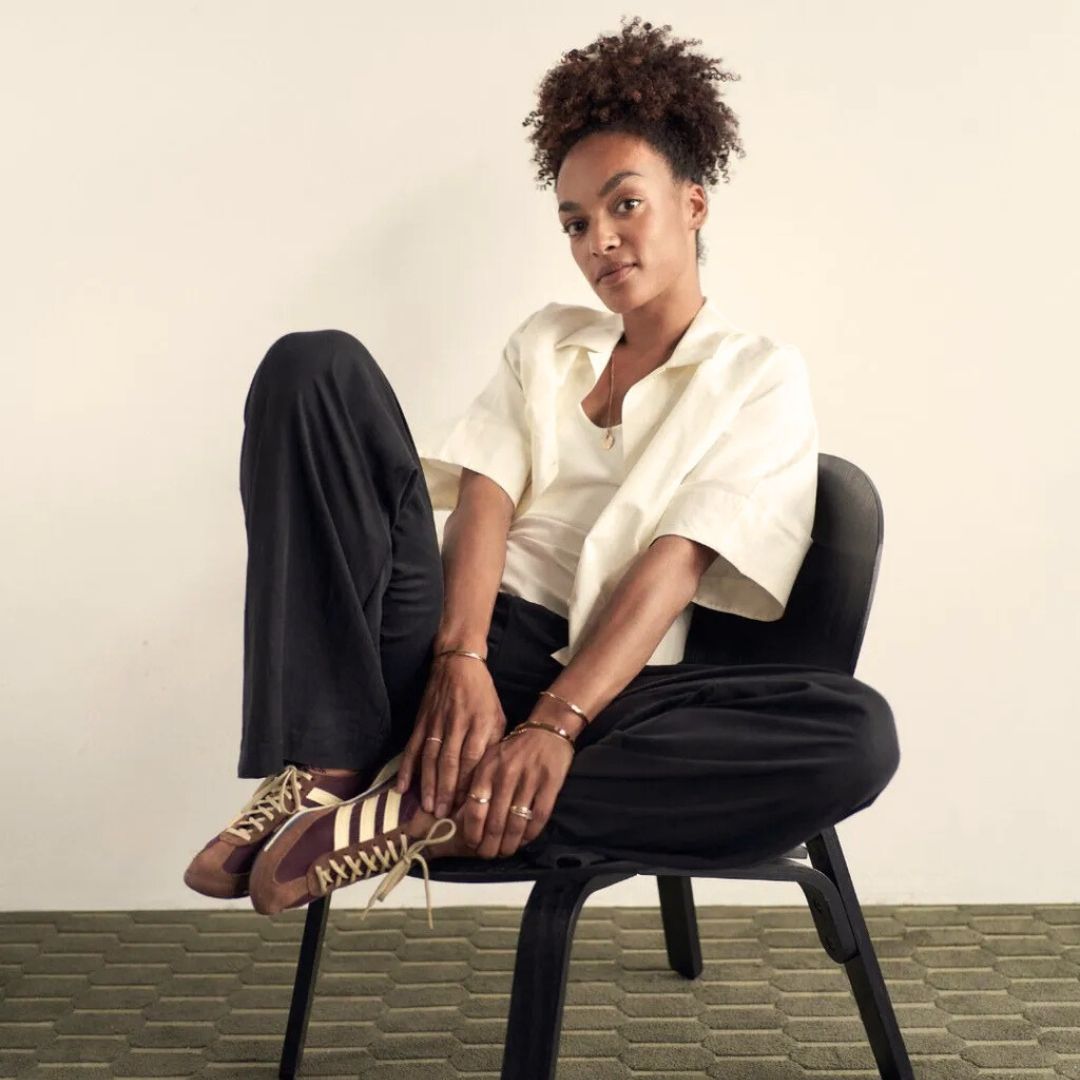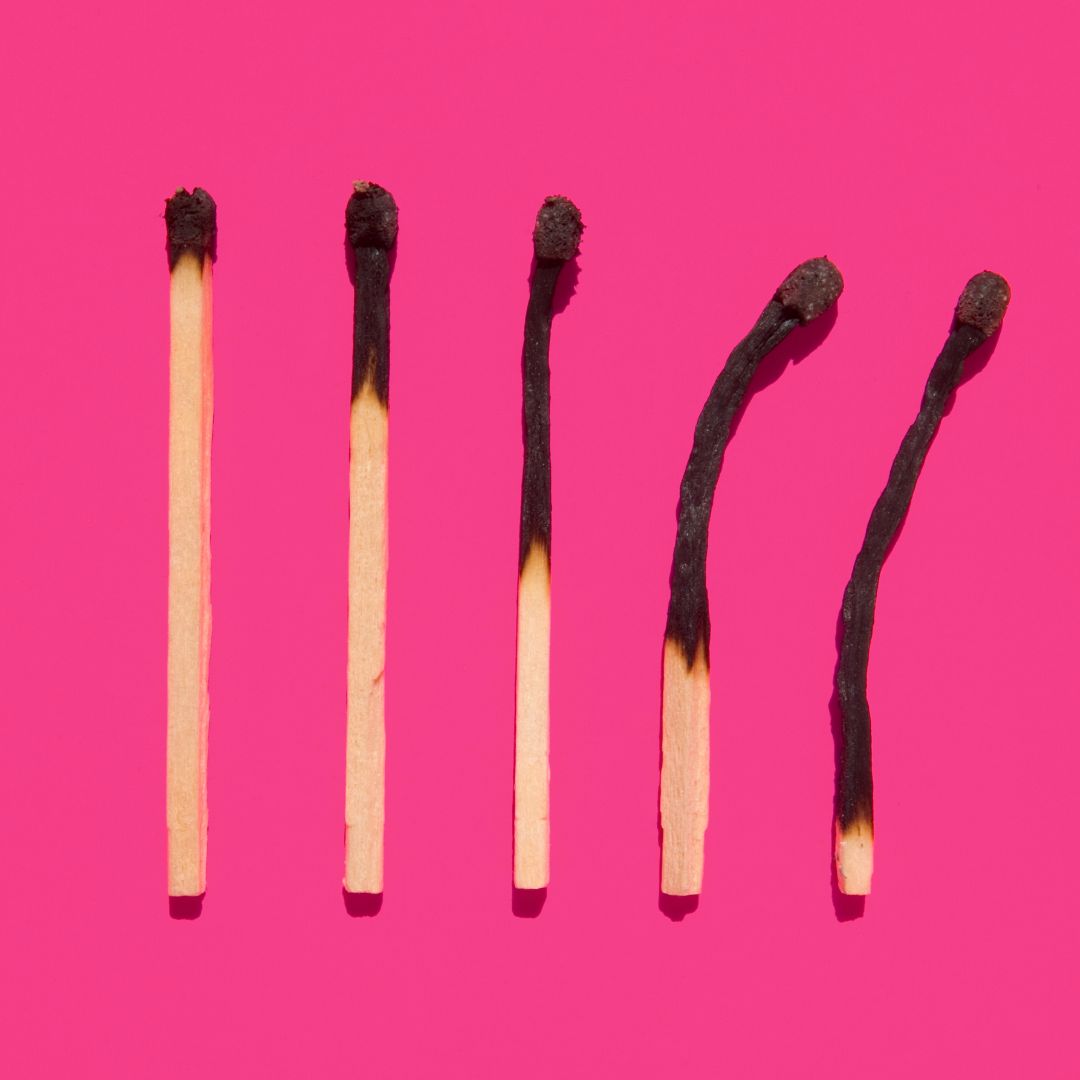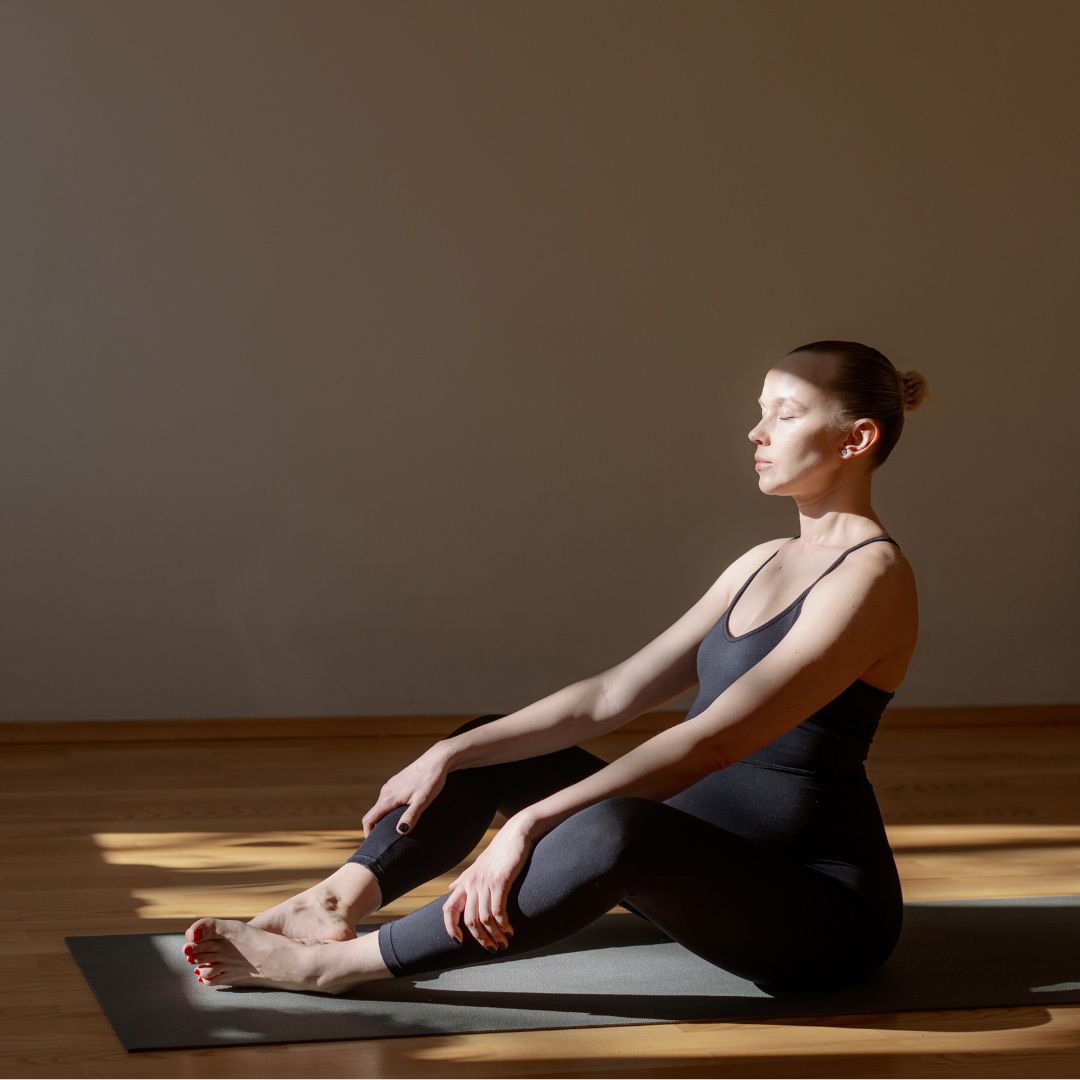One in five new mums experience mental health issues. A psychotherapist's top tips for safeguarding yours
Plus, this Maternal Mental Health Awareness Week, MC UK Editors share their own experiences.

Becoming a mum can be a rollercoaster ride - from falling pregnant, to growing a small child for nine months, to adjusting to life as a new mother, pregnancy changes so many aspects of your life and yet, is still not spoken about anywhere near enough.
Trigger warning: discusses sensitive themes
Maternal Mental Health Awareness Week, according to the Maternal Mental Health alliance, is "a week-long campaign dedicated to talking about mental health problems during and after pregnancy." The aim is simple: to raise awareness of perinatal mental health problems and make sure families know that the information, care and support they need to recover is available.
According to top expert Anna Mathur, a psychotherapist and best-selling author of Mind Over Mother: Every Mum's Guide to Worry and Anxiety in the First Year, becoming pregnant, giving birth and then adjusting to life as a new mum can all be challenging in their own right. "If you’re finding yourself battling thoughts of worry, fearing illness more than normal, or catastrophising constantly, you’re certainly not alone," the mum-of-three tells Marie Claire UK.
This Maternal Mental Health week: Team MC UK share their personal stories
Everyone's experience of falling pregnant, giving birth, and then becoming a new mum will be unique and individual, as Team Marie Claire UK's personal experiences highlight. For Fashion Editor Penny Goldstone, getting pregnant was the hardest part. "You spend years being told how not to get pregnant, so nothing prepares you for how you'll feel when you can't get pregnant," she shares. "After a year of trying, we got diagnosed with "unexplained infertility" - a frustrating catch-all for, "we don't know what the hell is wrong with you,"" she shares. She reflects that there wasn't much emotional support for this, other than the infuriating "just relax and it'll happen." "I felt strong and positive for another year of trying and after that, it steadily declined. There was loneliness, guilt (what was I doing wrong?), jealousy and yes, anger at every pregnancy announcement on Instagram. I hit rock bottom when we got pregnant naturally but had to terminate the pregnancy at 13 weeks due to a fetal heart defect. The follow-up care for that was also shocking - there is so little support provided to couples who experience loss or infertility."
Penny and her husband ended up doing IVF and now have a beautiful two-year-old daughter. But she maintains that support for women going through the same needs to be better. "You never believe it'll happen for you until it does," she reflects.
A post shared by Pénélope Goldstone (@pennygoldstone)
A photo posted by on
There was no care nor did anyone check if I was okay
Fashion Director Lily Russo-Bah agrees, adding that her own pregnancy experience caused mental health issues both pre and post-birth. "No one can ever prepare you for how challenging the entire experience of pregnancy will be from start to finish," she shares. "I had a miscarriage at nine weeks. Not only did my GP tell me in an appointment that miscarriage was very rare - which is just not true - but they remained emotionless when I had my scan and they didn’t see a heartbeat. There was no care nor did anyone check if I was okay. They just told me to leave and called the next patient." Despite miscarrying, Lily continued to receive the paperwork regarding antenatal appointments and subsequent scans. "Fortunately, I was able to brush these off, but had someone had repeated miscarriages or been in a vulnerable state, it could have been very different."
Marie Claire Newsletter
Celebrity news, beauty, fashion advice, and fascinating features, delivered straight to your inbox!
Miscarriage, she reflects, is something that's rarely spoken about, despite it being one of the most traumatic experiences of her life. "It’s incredibly gory and painful, and the GP and nurses were very dismissive. I felt like they expected me to just get on with it." She did fall pregnant again, though, and while the pregnancy itself was okay, she suffered from postnatal depression after giving birth to her daughter. "I really struggled throughout the first year because I was running my own business and unable to take maternity leave. I was sitting waiting for my C-section replying to emails and was back on emails the very next day." She stresses that this isn't something she would recommend to anyone - "it really was incredibly difficult." That said, she often wonders about all of the women at home suffering in silence and without the right support. "It goes without saying that women are super," she concludes.
A post shared by Lily Russo-Bah (@lilyrussobah)
A photo posted by on
Talking helped pull me out when I felt like I was drowning
For Senior Beauty Editor Katie Thomas-Haynes, both pregnancies were challenging in their own ways. "I've always been an anxious person, but never has my mental health taken such a nose dive than when I was on both maternity leaves. I put this down to loneliness, lockdown and the loss of my former self. And the days of constant crying - why does no one warn you about the days when tiny humans have both the energy and determination to spend all day crying?," she shares.
That said, during her first maternity leave, she was fortunate enough to have an NCT friend who was a GP who, when she opened up about how low she was feeling, sent her the Edinburgh Postnatal Depression Scale. "I took my results to my GP who referred me to NHS Talking Therapies which meant that, going into my second maternity leave, I was aware of the signs and knew when I could feel myself slipping." For Katie, talking helped "pull [her] out when [she] felt like [she] was drowning." "I would talk to the health visitor, my husband, my neighbours, and my many, many, Whatsapp groups, and in doing so, I was a lot less lonely and a lot less overwhelmed." But, while being a mother is one of the hardest things she's ever done and challenged her mentally in ways she never knew possible, she wouldn't change it. "Kids are clever buggers and on your lowest day, when you feel completely shattered and hollow, that's when they'll giggle for the first time."
A post shared by K A T I E T H O M A S (@katie_thomas_hayne)
A photo posted by on
Exercise lifted my mood and energised me when I was totally sleep-deprived
Editor-in-Chief Andrea Thompson had a "relatively smooth” pregnancy and birth, by all accounts, but struggled badly with daily morning sickness. "We were the first of our friends to get pregnant - it happened quickly, so I really didn’t have any expectations," she explains. "The worst part for me though was the horrendous morning sickness I had for the whole pregnancy. It was crippling being in the office each day as I kept having to nip to the loos to be sick. It almost put me off having another child. And it happened the second time around too."
Luckily, she actually had a very positive mental health journey with both her boys. "I kept very active during my mat leave which I believe helped my mental wellbeing. I went out for a power walk with my pram every day in nearby parks and walked everywhere instead of taking public transport, meaning I was getting plenty of fresh air and exercise. It lifted my mood and energised me in the winter months or when I was totally sleep-deprived. Joining NCT groups also really helped as I always had another mum to go out and exercise with."
One thing's for sure: more needs to be done to support new mothers and ensure their mental health is safeguarded during such a monumental time of change. Below, Mathur shares her top tips for safeguarding your mental health pre, during, and post-birth. Do remember: you are never alone.
A post shared by Andrea Thompson (@andreacanwrite)
A photo posted by on
6 tips for safeguarding your mental health, as an expecting mother
If you're trying to get pregnant, currently expecting, or have just given birth, Marhur shares her top tips for protecting your mental health - the most important point being to remember that there are people out there who can help, whatever you're feeling. "The below may seem like little steps, but that’s all new mums have the headspace for," she reassures. "Know this: these little steps have the potential to slowly make big changes in the way you feel." Her best advice? "Keep at them, keep talking, and keep being kind to yourself."
1. Be kind to yourself
We know to be kind to others, but how kind are you to yourself? Mathur explains that it’s absolutely vital to bring compassion into how you're feeling at this current moment. "You're being stretched in so many ways, so it’s a tall order to expect to function to the same speed and standard as normal," she explains.
Try this: Cut corners where you can, and accept support when it comes your way, be it practical or emotional.
2. Let mixed feelings be
Of course, there's so much joy and gratitude to be had with having a baby. But know this: joy can sit beside harder emotions like overwhelm and grief, even though they might feel contradictory, explains the psychotherapist.
Try this: "Remind yourself that it’s okay to grieve for the fact that this precious time with your new baby isn’t how you’d hoped, or you quite frankly miss the freedom and support you find in normality," she shares.
3. Don’t play emotional top-trumps
Ever felt that you couldn’t find something hard because someone else you know might have had it harder? "There will always be someone who has a bigger struggle or an easier ride of certain things," explains Mathur. That said, your emotions are utterly valid regardless.
Try this: Acknowledge that feelings are feelings regardless of someone else’s circumstances and that they deserve to be felt regardless of what someone else may be going through.
4. Keep talking
This one's important. "Ensure that you surround yourself with people who you can be open with about how you're feeling," she advises.
Try this: Make sure you take the time to talk to them or have an emotional check-in - this could be on the phone or in person, during a walk or over a cup of tea. "Having your feelings acknowledged means that they are less likely to come out in a tearful meltdown later," she encourages. "You may prefer to type into a forum to gain confidence if speaking openly to a friend feels like too big of a step right now."
5. Make space
You'll likely know that it’s important for your mental wellbeing to find ways to rest and refuel, but that might feel hard when you're running on minimal sleep.
Try this: Create a sense of space and separation by going out for a walk or listening to a podcast with headphones on. "Find small ways to engage in the things that make you feel like yourself. "It may take extra organisation, but prioritising this will pay off," Mathur shares. Self-care ideas at the ready.
6. Curb overthinking
And finally, try and put a halt to exhausting "what if" games where you find your mind going over and over all the things that could go wrong, advises the psychotherapist. "Overthinking fuels anxiety like a petrol bomb thrown onto a fire," she explains.
Try this: "Use a distraction technique to quickly occupy your brain, such as counting back from a hundred in threes," Mathur shares. Similarly, breathing techniques can calm any physical feelings of anxiety. "Spend a moment breathing in for four and out for six and notice your shoulders relax," she advises.

Ally Head is Marie Claire UK's Senior Health and Sustainability Editor, nine-time marathoner, and Boston Qualifying runner. Day-to-day, she heads up all strategy for her pillars, working across commissioning, features, and e-commerce, reporting on the latest health updates, writing the must-read wellness content, and rounding up the genuinely sustainable and squat-proof gym leggings worth *adding to basket*. She also spearheads the brand's annual Women in Sport covers, interviewing and shooting the likes of Mary Earps, Millie Bright, Daryll Neita, and Lavaia Nielsen. She's won a BSME for her sustainability work, regularly hosts panels and presents for events like the Sustainability Awards, and is a stickler for a strong stat, too, seeing over nine million total impressions on the January 2023 Wellness Issue she oversaw. Follow Ally on Instagram for more or get in touch.
-
 Jonathan Anderson is going to Dior Men
Jonathan Anderson is going to Dior MenHis debut collection will be this June
By Mischa Anouk Smith
-
 I'm a 2025 bride and these are the best affordable wedding dresses I've found
I'm a 2025 bride and these are the best affordable wedding dresses I've foundLess than £1,000 but still the height of chic
By Sofia Piza
-
 Short on time but keen to boost body and mind? Top experts share their go-to 10-minute yoga flows
Short on time but keen to boost body and mind? Top experts share their go-to 10-minute yoga flowsGuaranteed to make you feel grounded.
By Ashleigh Spiliopoulou
-
 As Mel Robbins' Let Them theory gains global traction - how the simple tool promises to transform your life
As Mel Robbins' Let Them theory gains global traction - how the simple tool promises to transform your lifeNot to mention, help you take back control.
By Katie Sims
-
 I'm a leading wellness expert - and always turn to these 5 simple prompts before saying yes to a decision
I'm a leading wellness expert - and always turn to these 5 simple prompts before saying yes to a decisionAlways feel torn? Consider this your bible.
By Adrienne Adhami
-
 I'm a world-renowned psychotherapist - why mastering your emotions is the key to overall wellbeing
I'm a world-renowned psychotherapist - why mastering your emotions is the key to overall wellbeing"Authenticity involves acknowledging your feelings and deliberately deciding how to express them."
By Ally Head
-
 Burnout: “My days blurred into late nights at the office, fuelled by stress and a compulsion to prove myself”
Burnout: “My days blurred into late nights at the office, fuelled by stress and a compulsion to prove myself”Life after burnout: How women can recognise, recover, and reclaim balance
By Dorothy Herson
-
 Feeling frazzled RN? Your fail-safe guide to how to boost calm, any place, any time
Feeling frazzled RN? Your fail-safe guide to how to boost calm, any place, any timeTop pros share how they keep their cool.
By Camille Dubuis-Welch
-
 Being outside is one of the most effective ways to boost calm - 4 invaluable lessons I learnt from an off-grid weekend
Being outside is one of the most effective ways to boost calm - 4 invaluable lessons I learnt from an off-grid weekendIt's a busy time of year - but sometimes, all it takes to boost calm is to step outside.
By Ally Head
-
 I wrote my own dopamine menu after seeing them go viral - and can't stress how much it's boosted my wellbeing
I wrote my own dopamine menu after seeing them go viral - and can't stress how much it's boosted my wellbeingThis one's worth a try.
By Chloe Gray
-
 How the trending 5-4-3-2-1 technique promises to boost calm and ease tension in just minutes
How the trending 5-4-3-2-1 technique promises to boost calm and ease tension in just minutesAn expert gives their verdict on the viral method.
By Chloe Gray